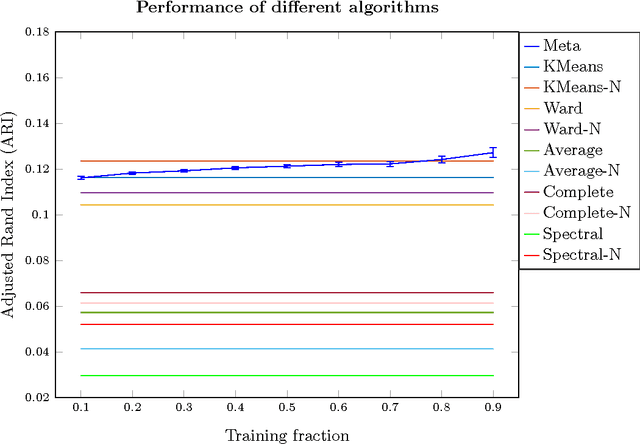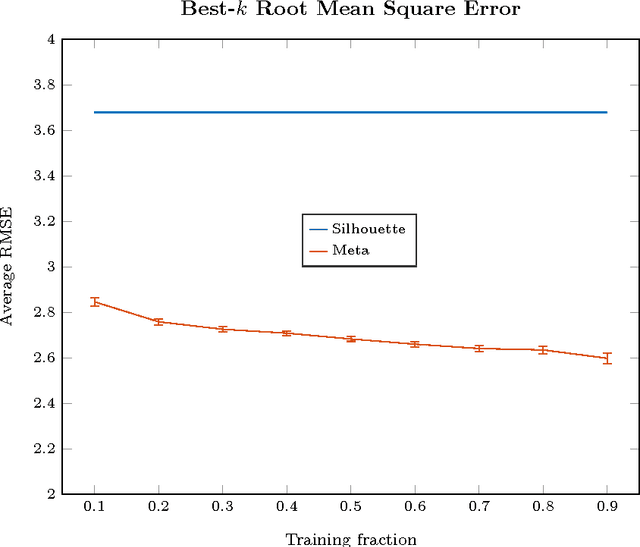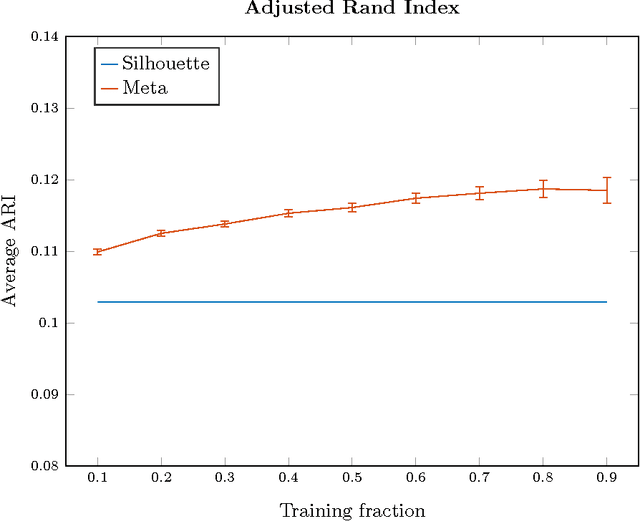Meta-Unsupervised-Learning: A supervised approach to unsupervised learning
Paper and Code
Jan 03, 2017



We introduce a new paradigm to investigate unsupervised learning, reducing unsupervised learning to supervised learning. Specifically, we mitigate the subjectivity in unsupervised decision-making by leveraging knowledge acquired from prior, possibly heterogeneous, supervised learning tasks. We demonstrate the versatility of our framework via comprehensive expositions and detailed experiments on several unsupervised problems such as (a) clustering, (b) outlier detection, and (c) similarity prediction under a common umbrella of meta-unsupervised-learning. We also provide rigorous PAC-agnostic bounds to establish the theoretical foundations of our framework, and show that our framing of meta-clustering circumvents Kleinberg's impossibility theorem for clustering.
 Add to Chrome
Add to Chrome Add to Firefox
Add to Firefox Add to Edge
Add to Edge